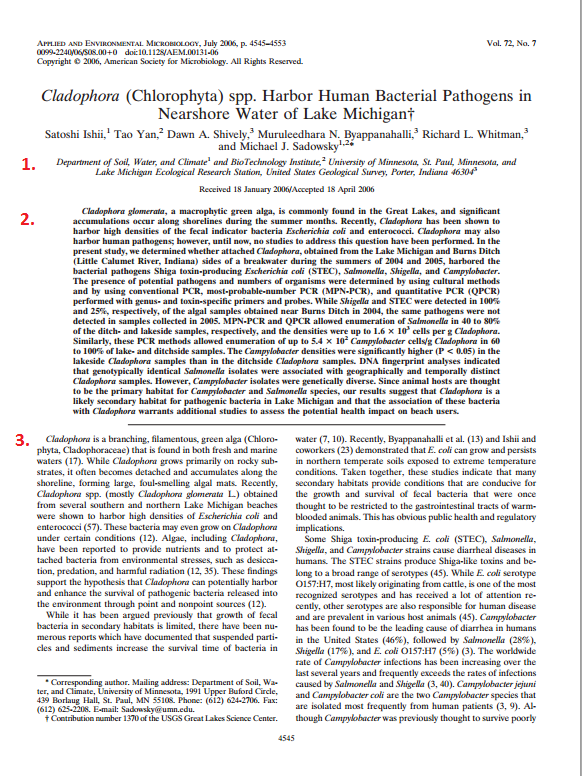
Welcome! Click on a tab below to find books, articles, and websites for use in this course.
You'll need a College of DuPage Library card in order to use most of the resources below from off campus. If your card is not working, it may need to be reactivated.
Questions? Contact me (info to the right), stop by the Reference Desk, or contact us by email or chat.
Picking Your Topic
The field of genetics can encompass anything from vaccines to food to human cloning. One of the best ways to find a research topic that interests you is to look at dictionaries and encyclopedias in order to figure out what studies in genetics are being done.
Start with the following:
Gale Virtual Reference Library ONLINE.
CQ Researcher ONLINE
Encyclopedia of Environment and Society by Paul Robbins
Still Feeling Lost?
Try looking at current magazines and/or journals to see what types of research are being done in genetics. At our library, we have the following in print:
Searching Databases to Find Scientific Research Articles:
Once you know what keywords or topics you'd like to pursue, it's time to head to the databases in order to find good sources.
Best bet databases for this project:
Science Direct
Science Direct is a database full of scientific scholarly articles. In order to search, try putting in two keywords and selecting "Subscribed Journals" on the initial search screen. Confused? Click below.
Academic Search Complete.
Academic Search Complete is a database covering a wide variety of topics, with articles ranging from newspaper and magazine articles to scholarly articles. Therefore, you want to be very careful about looking at the results of your search to make sure that you have a scientific research article for class. Try using the same keywords you used in Science Direct, and then use the date and Scholarly (Peer Reviewed ) Journals limits to get started.
Distinguishing a Research Article From a Popular Article
Worried that you might be reading a trade article from a scholarly article, or a review article from a scientific research article?
Start by looking for the distinctive markers of a scholarly article: are the authors' degrees or university affiilations listed? Do you see an abstract? How about charts, tables, graphs?
Once you are certain that you are looking at a scholarly article, make certain that your article is a scientific research article, by looking for the following distinctive sections:
- Abstract
- Introduction
- Method
- Results
- Discussion
- Conclusion
- References or Works Cited
Some of these sections may be merged with other sections, have slightly different names, or may not be labeled, but all should be present in one way or another.
Confused? Take a look at page one of a scholarly article below:

Notice the following:
- The authors list a university affiliation
- The abstract is right in the center of the page
- The (unmarked) introduction
Want to take a closer look? Cladophora (Chlorophyta) spp. Harbor Human Bacterial Pathogens in Nearshore Water of Lake Michigan is a research article found on PubMedCentral, the government-sponsored free article database. You can use this as a model scholarly research article.
- Check out this handy guide to reading scholarly articles.
- Remember that you can use reference databases to explain words or concepts that you're unfamiliar with. Try searching Credo or Gale to start.
Using APA Style
Find directions about how to cite your sources on the library citation guide.
Most databases will have a Cite link that you can also click to get article citations.
Finally, you are welcome to use NoodleBib if you'd like to use a program to create and organize your citations. You must "Create a New Folder" when you use NoodleBIB for the first time. Click on "I am citing a(n):," choose the type of item you are citing, and then fill in the online form. Your bibliography will be formatted for you.
Further questions about APA style? Check out the APA Style Blog, which includes sample papers.